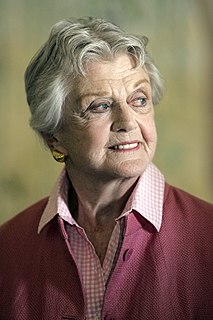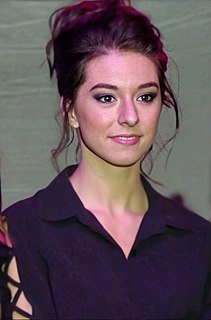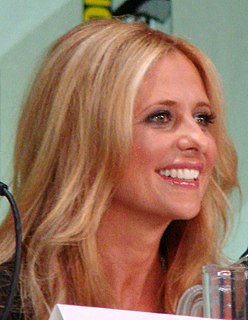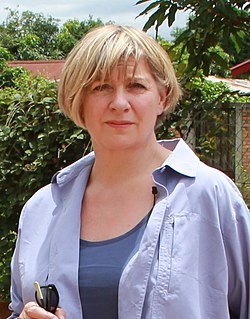A Quote by Haskell Wexler
When I search myself carefully I do think it's from my mother. I even feel strange saying that. Most people, I believe, when they're asked profound questions about their own persona are not really able to enunciate it, because it's a combination of so many things. But certainly influences early on that I felt from my mother. I wouldn't say she was "political" per se; she was sensitive to other people.
Related Quotes
A lot of people say that Eleanor Roosevelt wasn't a good mother. And there are two pieces to that story. One is, when they were very young, she was not a good mother. She was an unhappy mother. She was an unhappy wife. She had never known what it was to be a good mother. She didn't have a good mother of her own. And so there's a kind of parenting that doesn't happen.
...what I love about Ann Coulter is that she's sort of the-she's sort of a version of myself in that she absolutely never pulls a punch. Even when she's saying something that I think is outrageous, it's what she really believes and she doesn't back off of it. And that is what I find so refreshing and, unfortunately, so unique. I can't name five other people who do that, who don't calculate before they speak.
I talked to my mother about it a lot. I asked her what it was like to grow up in New York and Harlem in the 1920s and 1930s, and I asked her about a woman leaving her husband. I asked her about how she would feel about that woman, and my mother grew up in the Church Of God In Christ, and she told me that the woman might be isolated because the other women thought she might go and come after their husbands. That's how they thought then.
Occasionally, on screen, Barbara [Stanwyck] had a wary, watchful quality about her that I've noticed in other people who had bad childhoods; they tend to keep an eye on life because they don't think it can be trusted. After her mother was killed by a streetcar, she had been raised in Brooklyn by her sisters, and from things she said, I believe she had been abused as a child. She had lived an entirely different life than mine, that's for sure, which is one reason I found her so fascinating. I think her early life was one reason she had such authenticity as an actress, and as a person.
She had that thing most people don't have - curiosity. She might not have always got the right answers, but she wanted to ask the questions. It's very hard if you are interested in ideas and all that, ideas and the philosophies of the past, it's very hard to find someone around here to really talk to. That's the tragedy of the thing really I mean, when you think about it. Certainly I can't find anyone around here to talk to anymore. And for a woman it's even harder you see. They can feel very trapped - because of the patriarchy. I do feel everyone needs to have these little chats now and then.
She writes that one of the moments that she felt most useful was when her mother had a headache, and she would stroke her head and rub her forehead. And I think Eleanor Roosevelt's entire life was dedicated to two things: (one) making it better for all people, people in trouble and in need, like her family.
When you think Selena Gomez, you think 'celebrity.' But really, she does so many things for me. She's very caring. Before she goes on stage, she's a goofy girl. She's fun-loving and totally lovable, which I say in the most honest way. She's not even a celebrity to me; she's just a really cool person.
I think my mother became the muse because she had everything when she was in Hollywood: she had the marriage, the success, the money, all the films she wanted to do and yet even her, she had a longing and wanted to work with a film that had meaning, something more profound. And I think that was very touching to father.




































